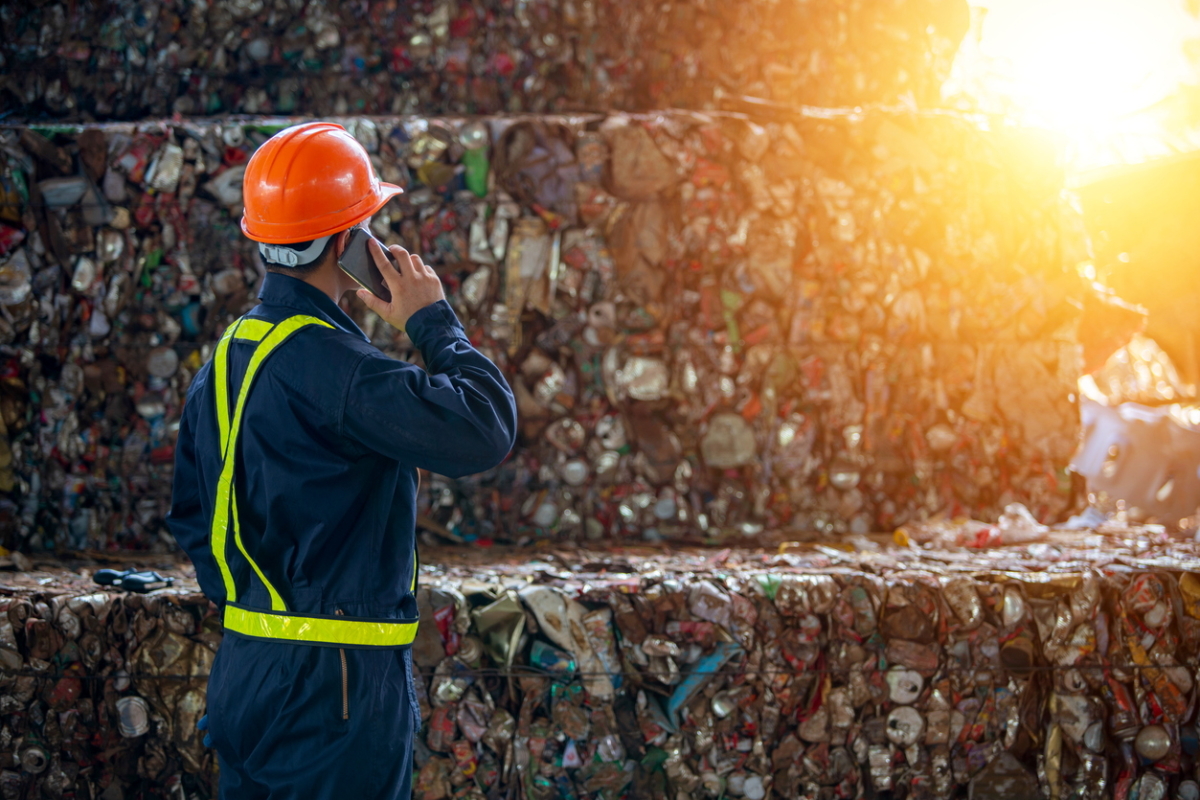Putting the ‘W’ in ESG – the case for a rethink on reporting of waste

Dr Michael Groves at Topolytics and James D’Ath at Edison Group explain how waste and recycling data can be made a more credible part of ESG reporting
Most large corporations report annually on environmental, social and governance (ESG) or sustainability performance. These reports, aimed at investors and other stakeholders, describe how they are engaging with communities and suppliers, employment practices, including diversity and inclusion, environmental management and associated economic planning.
While the ‘environmental’ strand of ESG is dominated by carbon emission, energy and NetZero considerations, there has been less attention paid to materials and waste.
This is now being challenged by government policy, increased supply chain pressures and rising costs - shifting the focus to resource efficiency and recycling. However, to realise the associated commercial and environmental benefits, there is a growing need for companies to gain greater visibility and understanding of what happens to waste.
The waste epidemic
Waste generation nearly doubled between 1970 and 2000 and continues to grow exponentially. The World Bank estimates that waste generated in urban areas will total 3.4 billion tonnes per annum by 2040.
These rising levels of waste are also linked to the rapid growth in consumption.
The 2022 Circularity Gap report notes that over 90 percent of the materials extracted and used to make products and packaging, ultimately become waste.
In essence, only 8.6 percent of these materials are fed back into the production system. This is poor from a resource efficiency perspective but perhaps more so in relation to climate, given approximately 70 percent of global greenhouse gas (GHG) emissions are linked to the way material is handled and used.
Within the corporate world, waste is often regarded as a cost of doing business - organisations buy raw materials, convert them to products, distribute and sell the products (plus packaging), which are then disposed after use.
Yet, this ‘linear’ economic model is now being challenged by government policy, increased supply chain pressures and rising costs.
As a result, many organisations are striving for a move towards a ‘circular’ economy. This includes designing products for reuse or maximising recovery and recycling of waste materials.
However, for many businesses, getting to grips with the volume and type of waste they produce, understanding what happens to this waste, measuring the associated impact and addressing the quality of the associated data, is a necessary first step.
Globally, publicly available waste data is usually drawn from national regulators and agencies. They, in turn, require commercial waste companies and municipal authorities to disclose data on a regular basis. The quality of this data is by its nature varied because the $1.6 trillion industry that manages and processes this material ranges from multinational corporations to informal community enterprises.
A key global challenge is the ability to monitor the billions of material movements annually, from hazardous sludges, through construction waste, inert recyclables (such as plastics and card), metals, organics/food and ‘special’ waste materials from industrial processes.
Yet, if the data across the waste system is highly variable, siloed and often questionable or non-existent, it also calls into question the quality of data that is fed into ESG reports.
When drilling into waste and recycling as a sustainability ‘issue’, there are a number of key challenges facing corporate reporters. Firstly, the waste management companies define and measure waste differently. Secondly, the end-to-end movement of waste through the system is not visible to any player in this value chain – from the waste producer through the carriers and processors.
So, how can businesses overcome this challenge?
As corporate waste producers and the waste industry adapt to a policy environment dominated by waste reduction and circularity, there is a need for new infrastructure and business models. Waste producers will want to exert more control over measurement and management as they seek to understand what happens to their waste and drive elimination and re-use of products and materials.
New technologies will also play a part, with sensors and robots collecting data across parts of the system and certain materials, particularly packaging. These technologies will only measure parts of the system, so the ability to make sense of many different data sources, will remain vital if waste and recycling performance in ESG reports is to be credible.
A key challenge for ESG reporters is that waste is not homogenous or easily categorised. It is a physical material (asset) that is created in one location, then moved for storage, transfer, sale, processing, disposal or reuse.
This is a complex picture; therefore, if waste and recycling metrics in ESG reports are to be trusted, it requires an understanding of the processes and commercial models associated with the production, movement and processing of the material.
This in turn requires the ability to access, process, standardise and analyse data from many sources in different formats. Only then can it be distilled and visualised to generate meaningful, comparable metrics that can feed into reporting and actionable insights that can drive greater resource efficiency and recovery.
Dr Michael Groves is CEO of Topolytics; James D’Ath is ESG director at Edison Group
Main image courtesy of iStockPhoto.com

Business Reporter Team
Most Viewed
Winston House, 3rd Floor, Units 306-309, 2-4 Dollis Park, London, N3 1HF
23-29 Hendon Lane, London, N3 1RT
020 8349 4363
© 2025, Lyonsdown Limited. Business Reporter® is a registered trademark of Lyonsdown Ltd. VAT registration number: 830519543





